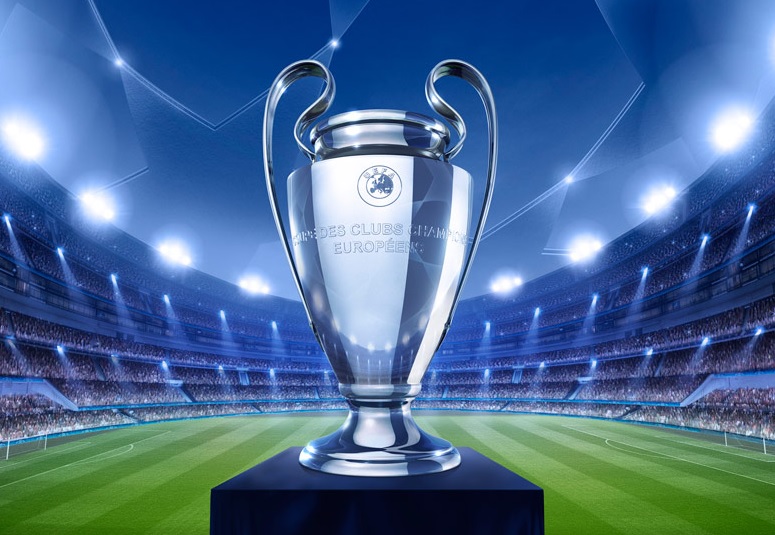It’s Champions League week this week and we’re pretty sure you know all about the two semi-finals taking place on Tuesday and Wednesday night.
- What Is The History Of The Champions League?
- How Do You Qualify For The Champions League?
- How Is The Champions League Preliminary Rounds, Group Stage & Knockout Phase Organised?
- How Do Champions League Teams Make Changes To Their Teams/Squads/Staff?
- What Are The Most Popular Champions League Betting Markets?
- Who Are The Champions League’s Most Successful Teams?
- Who Are The Champions League’s Most Famous Players – Past
- Who Are The Champions League’s Most Famous Players – Present
So with that in mind, we’ve decided to take a closer look at how the Champions League works, at least for the next year or so, giving you the lowdown on how teams can qualify in the tournament and what rounds they need to progress through to win.
We’ve also covered a little of the history of the tournament and give you some of its top teams and players over the years.
So if you are ready, let’s begin by taking a look at the history of this major European football tournament.
What Is The History Of The Champions League?
The creation of the European Cup stems back to the idea of French L’Equipe newspaper journalists Jacques Ferran and Gabriel Hanot who had long advocated an annual cup competition to decide who was the best team in Europe.
In March 1955, UEFA agreed and approval was given for the first European Cup to take place in the 1955/56 season.
Back then the tournament was called the European Cup and after an initially lukewarm reception, notably from the English Football League who initially barred its teams from entering, the popularity of the tournament and its early dominant team Real Madrid, soon saw its popularity and importance grow.
Teams from Spain, Italy and Portugal enjoyed the most success early in the tournament and it wasn’t until 1967 that team from a country outside the three won it, that was Celtic, who were followed a year later by Manchester United, who landed their achievement ten years after the awful Munich Air disaster which robbed the club of an outstanding group of players.
Ajax dominated the early 1970s, with Bayern following in the mid-1970s, both winning three titles in succession each. Then came a period of dominance for English teams which saw Liverpool win the trophy four times, Nottingham Forest twice and Aston Villa once.
After the Heysel disaster in 1985, English teams were banned from European competition and we saw a number of new winners including Steaua Bucharest, Red Star Belgrade, FC Porto and PSV Eindhoven before AC Milan won two tournaments at the turn of the decade.
The 1991-92 season was the final tournament under the name of the European Cup as major changes in European football were about to occur with the formation of the Premier League in 1993, and in the year before that, after Barcelona had landed their first win in 1992, the European Cup then became the Champions League for the 1992/93 season.
The name change also ushered in a new format for the competition which instead of a straight knockout from the start, would put teams into groups where they would play each other before quarter finals and semi finals would take place ahead of the final.
Over the years, the competition expanded from 16 teams in the Group Stage to the current number of 32 and that will expand to 36 from 2024/25.
Furthermore, as the tournament grew in size, it also grew in stature and it is now the pre-eminent club tournament in the world today, offering clubs the chance to win huge amounts of cash, simply by qualifying for the Group Stage.
Additionally, and more controversially, it is now not just the Champions that qualify for the tournament from each country with some of the top countries in Europe having three or four entrants into the tournament each year.
How Do You Qualify For The Champions League?
All of UEFA’s registered nations are permitted to enter at least one team into the Champions League each season, although how many teams a country will see qualify and at which stage of the competition they will begin their campaign differs based on each countries UEFA coefficient.
The top five leagues in Europe will submit four teams into the Champions League each season, the sixth best league will see three teams admitted with the teams ranked 7th to 15th each seeing two teams entered.
All other Leagues ranked 16th to 55th (bar Liechtenstein) see one team entered.
Entry into the tournament is decided by league position the previous year in most cases although the Europa League Winners and Champions League Winners are also guaranteed a place in the tournament the following year too.
How Is The Champions League Preliminary Rounds, Group Stage & Knockout Phase Organised?
- Preliminary Rounds – July to September
The lower ranked teams from leagues with the lowest UEFA coefficients start their campaign at various stages of the Preliminary and Qualifying Rounds, along with the lowest ranked teams from those countries that have more than one qualifier.
There is one preliminary round (featuring four teams), followed by three qualifying rounds and a Play-off round to determine which six teams reach the Group Stages alongside the 26 teams already pre-qualified for that stage of the tournament.
Losers in the later playoff rounds are given entry into the Europa League as a consolation prize.
- Group Stage – October to December
Once the 32 teams in the Group Stage are confirmed, a seeded draw takes place in Nyon to decide the composition of each of the eight groups in the Group Phase. Teams are grouped into eight seeded groups of four with one team from each group of seeds drawn into a different group.
There are rules over which teams can be placed in which group. Teams from the same nation, for example, cannot be placed together in a group.
Once completed, the Group Stage sees each team play the others in its group home and away over a total of six games in the run up to Christmas.
The top two teams in each group qualify for the Knockout Phase of the tournament, while the team finishing third in each group is entered into the draw for the Europa League Playoff Round, but eliminated from the Champions League along with the bottom placed side in each group.
- Knockout Stage – February to June
The first round of the Knockout Stage, the Round of 16, sees teams that are from the same nation and those that also competed in the same group before Christmas kept apart for this first draw of the knockout phase.
There then follows a straight two-legged knockout tournament from the Round of 16, through the Round of 8 (Quarterfinals) and Round of 4 (Semi-finals) in order to decide who reaches the final.
From the Round of 8 onwards, the draw is entirely random and teams from the same nation and who played in the same group, can be drawn against each other from then on. UEFA usually draws quarter finals and then the potential semi-finals at the same time so teams can plot their way to the final.
The final is held each year at a different venue around Europe, in 2023, that will be the Ataturk Stadium in Istanbul in Turkey. Wembley in London will host in 2024 and the Allianz Arena in Munich will be the host in 2025.
- Big Change Is Forthcoming To Champions League from 2024
This format though will only last for this and next season as from the 2024/25 tournament, UEFA will introduce a new look Champions League format with an expanded number of teams.
When this happens we will of course update the article to reflect the changes.
How Do Champions League Teams Make Changes To Their Teams/Squads/Staff?
Prior to the Group Stages, the competing teams in the Champions League have to name a squad of 25 players, eight of which must be home-grown players. This is List A.
However, teams can also submit another list of players (List B) born after the 1st January 2001 who have been at the club since their 15th birthday, which often means teams can utilise this list to add younger players to their permitted squad, freeing up more space on List A.
Once the Group Stages of the tournament are completed and the winter transfer window has closed, teams can then alter their original lists for the knockout phase of the tournament.
In the past, if a player had played in the Champions League for one team, then they were not allowed to play for another team in the competition in the same season, but that rule has now been overturned.
What Are The Most Popular Champions League Betting Markets?
Betting on the Champions League with Bet365 Sport shows that the most common betting markets are those that are popular for other soccer bets.
For the outright markets this means backing a team to win the tournament, or at least reach the final, while the Top Goalscorer market is also popular in the tournament each year.
You will also find good betting available for which teams will win each of the groups in the group stages, once that draw has been made in September each year.
In terms of the games, accumulator bets, bets on which team will win, the correct score, first and anytime goalscorer markets are all popular as are bets on whether the game will see both teams score and over or under 2.5 goals.
The deeper you go into the tournament, especially from the group stages onwards, the more markets you will find available on each Champions League game with bet365 Sport.
Who Are The Champions League’s Most Successful Teams?
Dating back to the start of the European Cup in 1956, the following teams have enjoyed the most success in the tournament since it began:
- Real Madrid – 14 wins, 3 runners up
- Milan – 7 wins, 4 runners up
- Bayern Munich – 6 wins, 5 runners up
- Liverpool – 6 wins, 4 runners up
- Barcelona – 5 wins, 3 runners up
- Ajax – 4 wins, 2 runners up
- Manchester United & Inter Milan – 3 wins, 2 runners up
- Juventus – 2 wins, 7 runners up
- Benfica – 2 wins, 5 runners up
- Chelsea – 2 wins, 1 runners up
- FC Porto & Nottingham Forest – 2 wins, 0 runners up
- Celtic, SV Hamburg, Steaua Bucharest, Marseille, Borussia Dortmund – 1 win, 1 runner up
- Feyenoord, Aston Villa, PSV, Red Star Belgrade – 1 win, 0 runners up
- Atletico Madrid – 0 wins, 3 runners up
- Reims, Valencia – 0 wins, 2 runners up
- Fiorentina, Eintracht Frankfurt, Partizan Belgrade, Panathinaikos, Leeds United, Saint-Etienne, Borussia Moenchengladbach, Club Brugge, Malmo, AS Roma, Sampdoria, Bayer Leverkusen, Monaco, Arsenal, Tottenham, Paris St Germain, Manchester City – 0 wins, 1 runner up
Spain has been the most successful nation over the years with 19 wins and 11 runners up ahead of England with 14 wins and 11 runners up and Italy with 12 winners and 16 runners up.
Who Are The Champions League’s Most Famous Players – Past
Some of the most famoys players in Champions League and European Cup history of the past include:
- Alfredo Di Stefano (Real Madrid)
- Ference Puskas (Honved & Real Madrid)
- Paco Gento (Real Madrid)
- Raymond Kopa (Real Madrid)
- Bobby Charlton (Manchester United)
- Duncan Edwards (Manchester United)
- Just Fontaine (Stade Reims)
- Sandor Kocsis (Honved & Barcelona)
- Uwe Seeler (SV Hamburg)
- Eusebio (Benfica)
- Jose Altafini (Milan)
- Sandro Mazzola (Inter)
- George Best (Manchester United)
- Paul Van Himst (Anderlecht)
- Denis Law (Manchester United)
- Johan Cruyff (Ajax)
- Johan Neeskens (Ajax)
- Arie Haan (Ajax)
- Gerd Muller (Bayern Munich)
- Rob Rensenbrink (Anderlecht)
- Dino Zoff (Juventus)
- Franz Beckenbauer (Bayern Munich)
- Kevin Keegan (Liverpool & SV Hamburg)
- Kenny Dalglish (Celtic & Liverpool)
- Peter Shilton (Nottingham Forest)
- Trevor Francis (Nottingham Forest)
- John Robertson (Nottingham Forest)
- Wolfgang Felix Magath (SV Hamburg)
- Antonio Cabrini (Juventus)
- Diego Maradona (Barcelona & Napoli)
- Ian Rush (Liverpool)
- Michel Platini (Juventus)
- Zbignew Boniek (Juventus)
- Paolo Futre (FC Porto)
- Ronald Koeman (PSV Eindhoven)
- Ruud Gullit (AC Milan)
- Marco Van Basten (AC Milan)
- Franco Baresi (AC Milan)
- Paolo Maldini (AC Milan)
- Frank Rikjaard (AC Milan & Ajax)
- Darko Pancev (Red Star Belgrade)
- Robert Prosinecki (Red Star Belgrade)
- Dejan Savicevic (AC Milan)
- Michael Laudrup (Barcelona & Real Madrid)
- Jean-Pierre Papin (Marseille & Bayern Munich)
- Patrick Kluivert (Ajax)
- Clarence Seedorf (Ajax)
- Jari Litmanen (Ajax)
- Alessandro Del Piero (Juventus)
- Raul (Real Madrid)
- Iker Casillas (Real Madrid)
- Roberto Carlos (Real Madrid)
- Zinedine Zidane (Real Madrid)
- Ryan Giggs (Manchester United)
- Luis Figo (Barcelona & Real Madrid)
- David Beckham (Manchester United & Real Madrid)
- Paul Scholes (Manchester United)
- Ronaldo (Real Madrid)
- Ruud Van Nistelrooy (PSV, Manchester United, Real Madrid)
- Thierry Henry (Monaco, Arsenal & Barcelona)
- Lothar Matthaus (Inter Milan & Bayern Munich)
- Kaka (Milan)
- Ronaldinho (Barcelona, Paris St Germain, Milan)
- Steven Gerrard (Liverpool)
- Anders Iniesta (Barcelona)
- Xavi (Barcelona)
- Didier Drogba (Chelsea)
- Frank Ribery (Bayern Munich)
- Arjen Robben (Chelsea & Bayern Munich)
- Cristiano Ronaldo (Man Utd, Real Madrid, Juventus)
Who Are The Champions League’s Most Famous Players – Present
- Lionel Messi (Barcelona & Paris St Germain)
- Robert Lewandowski (B.Dortmund, Bayern Munich & Barcelona)
- Mohamed Salah (Chelsea & Liverpool)
- Karim Benzema (Lyon & Real Madrid)
- Luka Modric (Real Madrid)
- Vinicius Jr (Real Madrid)
- Kylian Mbappe (AS Monaco & Paris St Germain)
- Neymar (Barcelona & Paris St Germain)
- Kevin de Bruyne (Wolfsburg & Manchester City)
- Erling Haaland (Red Bull Salzburg, Borussia Dortmund & Manchester City)
- Jude Bellingham (Borussia Dortmund)
- Alphonso Davies (Bayern Munich)
- Sadio Mane (Liverpool & Bayern Munich)
- Virgil Van Dijk (Liverpool)
- Sergio Ramos (Real Madrid & Paris St Germain)




































